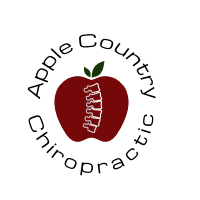A Tasty Way to Enhance Williamson Bone Health Cherries!
Aging bones. We can’t evade signs of aging, and our bones reveal our age. As we age, we lose bone density. Some of us find that we have osteoarthritis of bone. We all would enjoy not having to deal with aging and bone loss and osteoarthritis, but truth be told: many of us won’t. New research about how tart cherries may help prevent bone loss and osteoarthritis and improve bone health is welcome news to Apple Country Chiropractic. They may be a tasty way for our Williamson chiropractic patients to do what they can to keep their bones healthy!
BONE LOSS AND OSTEOARTHRITIS
Osteoarthritis, a degenerative joint disease, often precedes disability. There is no cure nor effective treatment yet discovered to stop it explains one set of researchers. NSAIDs and analgesics help with the pain but not with the course of osteoarthritis. Taking drugs sometimes brings about some adverse side effects for some patients over time which guided a group of researchers to check into what else may be beneficial. In their review of peer-reviewed articles, they wrote that nutrition can improve osteoarthritis symptoms. Apple Country Chiropractic has seen this often in its Williamson chiropractic practice! As these researchers found, glucosamine and chondroitin sulfate “robustly” delay the progression of knee osteoarthritis. While diet changes to improve lipid and cholesterol numbers, enhance vitamin levels and address overweight levels are beneficial in osteoarthritis care, including these two nutrients is, too. (1) Apple Country Chiropractic has more information on them both.
CONSUMING TART CHERRIES
A likely tasty way to supplement the diet for spine care is ingesting tart cherries. In this springtime in the US that finds the cherry trees in bloom, it is the ideal time for this new information about the benefits of cherries. But how much of a good thing like tart cherries is healthy and beneficial? Recently, researchers wrote that tart cherry may be a natural alternative to drug therapy to prevent bone loss in diseases like rheumatoid arthritis and others. They report that tart cherry shielded bone structure from inflammation-induced bone loss and (unlike infliximab, a common drug) moderately improved the decline in bone stiffness. (2) That’s positive! The researchers suggested that tart cherry may be useful to avoid future fragility fractures in the presence of highly chronic inflammation. (2) Further, another set of researchers note how the immune and endocrine systems play a role in age-related bone loss. Anti-oxidant, anti-inflammatory and prebiotic foods like tart cherries can possibly offset this occurrence. In testing 5% and 10% Montmorency tart cherry intake, researchers found significantly greater bone thickness in patients receiving the cherry than the control group patients. They determined that cherry supplementation (5% and 10%) increased bone mineral density down to the trabecular and cortical bone microarchitecture! (3) All from cherries! Apple Country Chiropractic sees this as a simple way to improve bone and is sure our Williamson chiropractic patients will, too!
CONTACT Apple Country Chiropractic
Listen to this PODCAST with Dr. Luigi Albano on The Back Doctors Podcast with Dr. Michael Johnson. Dr. Albano details his treatment of osteoarthritis of the knee with nutrition and Cox® Technic flexion-distraction inspired protocols for treating it on The Cox® Table and alleviating osteoarthritic pain.
Schedule a Williamson chiropractic appointment today at Apple Country Chiropractic. We can assess the status of your bone as well as your risk of age-related bone loss and cherry-related improvement! Taking care of aging bones may be very tasty!

